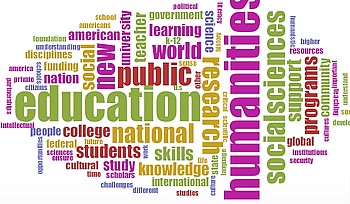Core Books (back
to top)
- Daniel Cohen & Roy Rosenzweig, Digital History: A Guide to Gathering, Preserving, and Presenting the Past on the Web (UPenn, 2006). ebook website
- Susan Schreibman, Ray Siemens, John Unsworth (eds.), A Companion to Digital Humanities (Oxford: Blackwell, 2004). ebook website
- Jack Dougherty and Kristen Nawrotzki (eds.), Writing History in the Digital Age (Creative Commons, 2013). ebook website
- Matthew Gold (ed.), Debates in the Digital Humanities (Univ. of Minnesota, 2012). ebook
- Sarah Horton, Web Teaching Guide: A Practical Approach to Creating Course Web Sites (Yale, 2000). amazon; companion website [Also: Access by Design, 2005, amazon]
- T. Mills Kelly, Teaching History in the Digital Age (Michigan, 2013). ebook
- Patrick Lynch and Sarah Horton, Web Style Guide: Basic Design Principles for Creating Web Sites (Yale, 3rd ed. 2009). ebook
- Jakob Nielsen and Hoa Loranger, Prioritizing Web Usability (Pearson/New Riders, 2006).
- Roy Rosenzweig, Clio Wired: The Future of the Past in the Digital Age (Columbia UP, 2013).
- David Staley, Computers, Visualization, and History: How New Technology Will Transform Our Understanding of the Past (M.E.Sharp, 2013).
- Toni Weller (ed.), History in the Digital Age (Routledge, 2013). google books, amazon, preview
|
 Word Cloud Visualization of "The Heart of the Matter," report from the "WhatEvery1Says" about the Humanities Project, 2013
Word Cloud Visualization of "The Heart of the Matter," report from the "WhatEvery1Says" about the Humanities Project, 2013